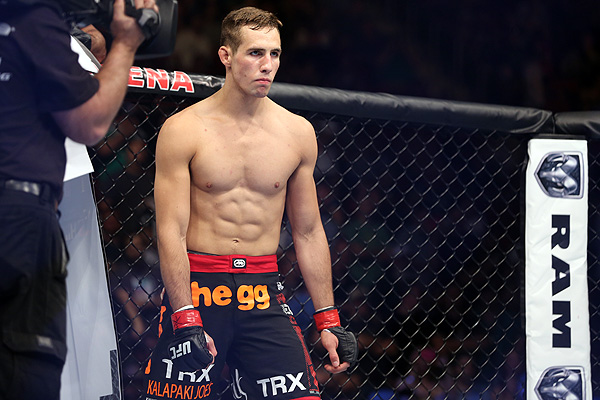Competition is always a great thing, especially in a capitalistic system where companies can compete against each other and force each other to put out a better product.
That’s how the current MMA landscape operates, too.
It’s not the same as the other major American professional sports leagues we have, where, for example, you either make it to the NBA to play professional basketball, or you’re out of luck. Sure, you can go play professionally in another country, but it’s just not the same notoriety. In MMA, if the UFC doesn’t want you, you can go to Bellator, the World Series of Fighting or the Resurrection Fighting Alliance. Unfortunately, these other organizations don’t usually offer the same kind of competition you’ll get out from the quality of fighters in the UFC.
That’s like working for a tech company that makes top-of-the-line products but lays off its employees. You find another job in your field with a company that makes similar products, but the quality is not as good. You’re still doing what you love, but it’s just not the same and you might not be satisfied making a product that’s not as good.
That can tend to be the mentality of a fighter who isn’t in the UFC any longer. However, the trend has started to subside. Now, many fighters are either leaving the “best” organization or getting let go, allowing them to go to one of these other companies, sometimes for better pay and, apparently, even better treatment.
Rory MacDonald is one of the more recent fighters to turn down the UFC and almost immediately bolt for its closest — yet, still distant — competitor. After fulfilling his contract with Zuffa, the 27-year old welterweight decided to play the field and see what other offers he could get. Eventually, he saw what Bellator MMA was offering, and he happily signed on the dotted line. Not only was he getting the money he wanted, but according to the former title challenger, he has a lot more flexibility to be who he is with Bellator MMA and its President, Scott Coker.
“The Red King,” of course, is referring to the controversial Reebok deal that the UFC signed and then debuted at UFC 189 in July 2015. UFC President Dana White has had to sell the deal to the public for a while now, while still drawing the ire of his employees. MacDonald, who fought on that historic card, had a lot to say about how he was treated by his former employer following the Reebok deal. MacDonald said it wasn’t fair how fighters were not involved in the partnership with the popular apparel brand name.
Now, with the rumors of former UFC kingpin Georges St-Pierre wanting to test that same free-agent market, as well as the release of Antonio “Bigfoot” Silva following his most recent knockout loss to Roy Nelson, it appears as if the world’s premier fighting organization is happy to hand over all these former fighters to join the UFC’s laundry list of competitors.
But why?
Here’s a possible answer: maybe it’s to make room for not only better fighters, but for more divisions.
The stock of Cristiane “Cyborg” Justino has steadily climbed ever since her debut in the UFC earlier this year. After a quick knockout win in May, she got another decisive victory just four months later. Both of these fights proved the point that Cyborg is a force to be reckoned with, and with how good she is, that only provides more reason for the UFC to bring in tougher contenders to go up against the Brazilian.
It might be wise for the UFC to finally open up the women’s featherweight division, seeing as how Cyborg is unable to make 135 pounds and has been forced to fight at a catchweight of around 140. UFC President Dana White has stated on multiple occasions that starting another division is a long ways away because of the lack of contenders. However, financially speaking and from a business standpoint, it’s the smart route to go. Just ask UFC commentator Joe Rogan.
So, while it may be risky to let fighters go and allow them to test the field of other MMA organizations and attack the UFC on their way out, ultimately the decision to let go of a veteran could be a wise strategy in the long run, because the UFC can make room for the cream of the crop fighters that will sell more tickets and put on better fights.

